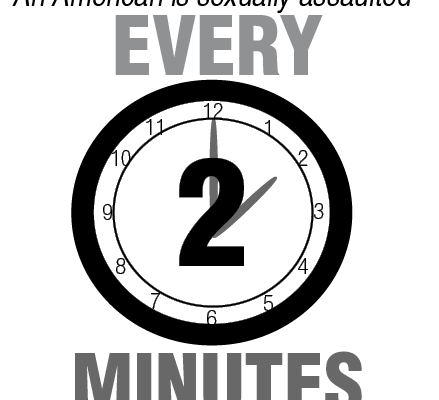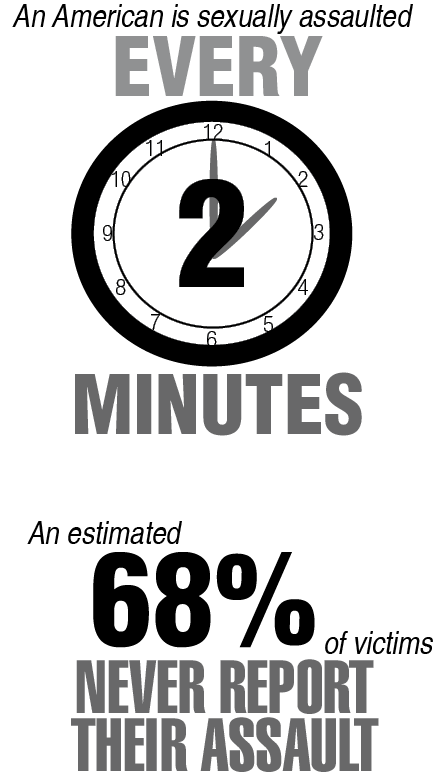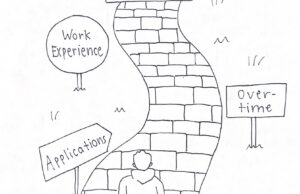Rape culture: California leads the way in eliminating ambiguity

Someone in the United States is sexually assaulted every two minutes. 44 percent of sexual assault victims are under 18, according to Rape, Abuse & Incest National Network. Although this is a crime rarely heard about in Newbury Park, it is a serious offense that affects more high school students than most think. As one of the most underreported crimes, an estimated 68 percent of sexual assault victims never go to the police. Sexual assault is clearly prevalent in society, but is shrouded in misinformation and stigma.
Sexual assault is defined as any type of sexual behavior that occurs without the consent of both participants. Even if the pair previously had intercourse, if both of them do not verbally agree to the act, it is still considered sexual assault. The National Coalition Against Domestic Violence explains that these types of crimes are not about sex, but power, control and fear. These acts can potentially bring the victim unwanted pregnancies, physical damage, sexually transmitted diseases, post traumatic stress disorder, and psychological harm including suicidal thoughts or actions.
In 2014, California was the first state in the nation to pass a bill that clearly defines what sexual assault is. The California Affirmative Consent Law (SB 967) clarifies whether or not rape has been committed on a college campus. In contrast to the “No means no” rhetoric previously in in practice, the new legislation establishes a new standard of “Yes Means yes.” The law requires a conscious and voluntary agreement prior to engaging in sexual activity.
“Lack of protest or resistance does not mean consent,” the law states, “nor does silence mean consent. Affirmative consent must be ongoing throughout a sexual activity and can be revoked at any time.” This clarifies that someone who is drunk or asleep is not able to grant consent and therefore any sexual contact would be considered a crime. The California Affirmative Consent Law only specifically protects those attacked on a college campus in California, so the law is not applicable to most cases across the nation. As a result, despite the new legislation, sexual assault perpetrators often escape punishment: 98 percent of rapists will never spend a day in prison. The California Affirmative Consent Law is a step in the right direction, but we still have a long way to go to change our society’s attitudes towards sexual assault.
Although sexual assault is a serious crime and can leave the victim with permanent damage, they usually remain silent about the offense. In 4 out of 5 incidences of rape, the victim knows his or her attacker. Often these situations will not be reported as the victim is scared that they will be ostracized or “victim blamed” by their community because their attacker is popular.
Victim blaming is the situation when the victim, usually of sexual assault, is considered the one who brought the crime upon themselves. People justify these accusations with comments such as “She/he was dressed inappropriately,” or “She/he was drunk,” or “She/he was flirtatious, so she/he was asking for it.”
This lack of acceptance isolates the victim leaving further psychological damage and promotes an environment where people are allowed to make light of the crime.
As society continues to create an environment where sexual assault victims feel ashamed to tell authorities about their attack, too many sexual assaults are allowed to occur with too few consequences. Groups such as “Make Rape Legal” take advantage of this social leeway and further push the standards of ethics about sexual abuse out of context. “Make Rape Legal”’s pertinence on social media allows the trend to influence a widespread audience with their views that belittle the severity of the crime.
The trend of victim blaming and joking about sexual harassment is exacerbated by media. We live in a world where gratuitous sexual violence can be heard in songs on the radio or watched on television shows or movies. For example, a popular rap song, U.O.E.N.O by Rocko says, “Put Molly (the drug) all in her champagne—she ain’t even know it. I took her home and I enjoyed that—she ain’t even know it.” These types of influences permeate media and pop culture and create a culture that trivializes the act of sexual assault. This trivialization rape culture in society – defined by the Marshall University Women’s Center as “an environment in which rape is prevalent and in which sexual violence against women is normalized and excused in the media and popular culture.”
To combat this culture, we as a society must acknowledge its existence and work to make sure we are not participating in it. To victims of sexual assault, you are heard. Your scars are legitimate. To society as a whole, the current culture of rape is unacceptable. We must change, and we must adhere to the idea that only a “yes” is true consent.
Graphic by Kellie Levine/Prowler




